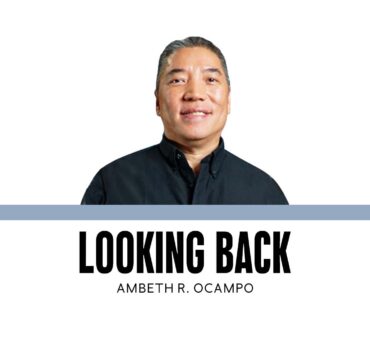Democracy and ethics in Indonesia

Yogyakarta—On the evening of Aug. 28, a young online motorcycle driver named Affan Kurniawan was killed by a tactical police vehicle during a demonstration in Jakarta. He was not a protester or a provocateur, just a gig worker trying to deliver food who was in the wrong place at the wrong time.
His death, tragic and avoidable, has become a symbol of the fragility of our democracy and the urgency of ethical reform in public life. Plato once warned, “The price good men pay for indifference to public affairs is to be ruled by evil men.”
Affan’s death is not merely a procedural failure; it is a moral wake-up call. It forces us to ask: What kind of democracy are we building, and for whom?
The nationwide protests that erupted in August were not spontaneous. They were the culmination of long-standing grievances: stagnant wages, exploitative labor systems, opaque tax policies, and a growing sense that the political elite has lost touch with the people they claim to represent.
Led by labor unions, student groups, and civil society organizations, the demonstrations demanded the abolition of outsourcing, fair minimum wage increases, tax reforms, and the ratification of long-delayed legislation, such as the domestic workers protection bill and the asset recovery bill.
The protests, while legitimate, also revealed vulnerabilities. In several cities, peaceful marches devolved into chaos, provoked by actors with unclear motives. Public buildings were burned, police injured and communities traumatized.
This duality between aspiration and agitation reminds us that democracy is not self-sustaining. It requires constant care, ethical leadership and civic maturity.
The official response to Affan’s death was swift. President Prabowo Subianto visited Affan’s family to express condolences. The police issued an apology and promised an investigation. But apologies, however sincere, are insufficient without systemic change.
Affan’s death is not an isolated incident. It reflects a deeper structural violence where the state’s instruments of protection can become instruments of harm. When institutions fail to protect the most vulnerable, they lose their moral legitimacy.
We must ask: Why was a civilian killed in a democratic protest? Why was a tactical vehicle deployed in a civilian zone? Why was there no protocol to prevent such a tragedy?
These questions demand answers, not just for Affan’s family, but for every citizen who believes in the promise of a just republic.
The protests also exposed a crisis of representation. While thousands marched on the streets, several members of the House of Representatives were on official visits abroad, drawing sharp criticism from civil society. Lawmakers’ perceived disconnect from the people they represent has fueled calls for reform, including demands to reduce legislative privileges and increase transparency.
If Indonesia is to move from mourning to meaning, we must embrace a road map for democratic renewal. First, reform political representation. The House must become a space of service, not privilege. This requires revisiting compensation structures, enforcing attendance and accountability and creating mechanisms for direct citizen engagement.
Second, revitalize civic education. Democracy is not inherited; it is learned. Schools must teach not only procedures but also values: empathy, critical thinking and ethical leadership.
Third, humanize security protocols. Security forces must be trained in nonviolent crowd management, de-escalation techniques, and human rights. A strong state is one that protects without provoking.
Fourth, strengthen media literacy and public dialogue. In the age of misinformation, citizens must be equipped to discern truth from manipulation. Public media should foster dialogue, not division.
Fifth, embed cultural wisdom in governance. These values must inform policy, not just ceremonial rhetoric.
Affan’s death must not be reduced to a statistic; it must become a turning point. A democracy that cannot protect its most vulnerable is a democracy in crisis. But a democracy that can learn, reform, and renew itself is a democracy worth fighting for.
We must move beyond reactive politics toward reflective governance. We must cultivate leaders who listen, citizens who care, and institutions that serve. To paraphrase Plato, a state that does not educate its citizens is like a ship without a captain.
Indonesia stands at a crossroads. The path forward is not paved with slogans, but with sincerity; not with power, but with principle; not with fear, but with faith in each other and in the values that bind us.
Let Affan’s memory be a light: one of awakening, not anger. Let it guide us toward a democracy that is not just procedural, but substantive. The Jakarta Post/Asia News Network
—————-
Bernardus Agus Rukiyanto is an associate professor at Sanata Dharma University. This is a shorter version of the article titled “From tragedy to reform: Rethinking democracy and public ethics in Indonesia.”
—————-
The Philippine Daily Inquirer is a member of the Asia News Network, an alliance of 22 media titles in the region.

















Labor unions and the common good